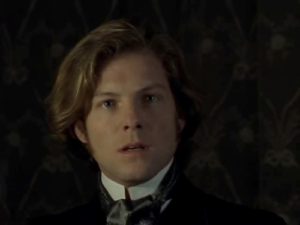“Robert Audley was supposed to be a barrister…” (Bradon 35)
This opening phrase can mean either that Audley is not truthfully employed or that he was born to occupy an office in Fig-Tree Court, Temple. The characterization that follows reveals both interpretations as equally applicable. Robert Audley is a man defined by what he is not and he has no interest in veering from the course predetermined by the circumstances of his birth. He is perfectly content to surrender himself to the dull pleasures of the routine. Numbers and passive language reappear throughout his introduction, reminders of Audley’s repetitious life and his past as an accountant: Robert is the “only child” of a father who left him “£400,” he’s aged “about seven-and-twenty,” a barrister for the “five years” his name has been painted upon “one door,” and he attends his “allotted number of dinners” (35). Although Robert’s complaints of “overwork” are laughed off, they are not entirely inaccurate (35). Audley’s greatest fault is not that he cares too little, but rather that he cares too much. Audley’s absolute rejection of violence is his only motivation, he spends all his hours contemplating how best to avoid conflict. Audley became a barrister only to avoid conflict with friends, this fear of opposition would explain why he “never… even wished to have a brief” as a confrontational litigator (35). Audley’s introduction is made even stranger by his friendship with George Talboys – a man in every way his opposite. Talboys sought out the life of violence as a dragoon that Audley so carefully avoided, not out of desperation but simple excitement. The cigar smoking Talboys plays cards while Audley smokes his “German pipe” and reads the same “French novels” unknown to Talboys earlier (35). Talboys is anxious to offboard the Argus while Audley is comfortable as a passenger on the leisurely cruise of his life.
 (George Talboys from Play ^)
(George Talboys from Play ^)